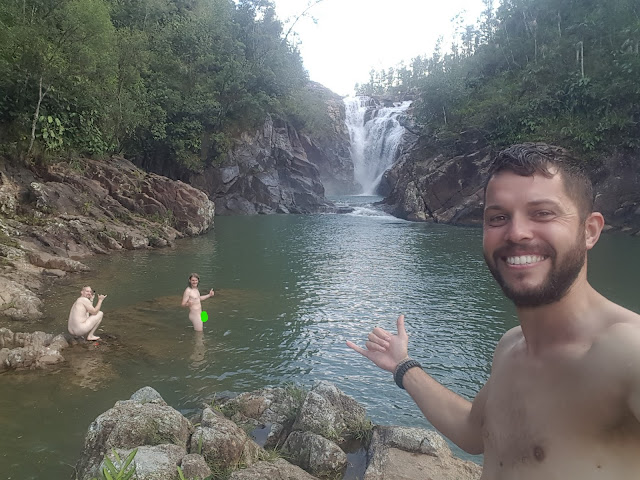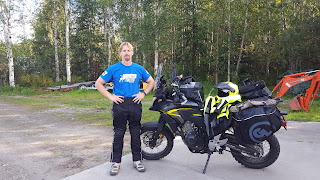Mission overview
Why this? Why now?
In 2007 I returned from a 16-month tour in Iraq, where I served as a US Army Infantryman with the 172nd Stryker Brigade Combat Team,
first in Mosul, then Baghdad, Iraq.
While overseas I participated in more than 100 combat missions. My roles ranged from mounted patrols as a Humvee gunner, to serving on the personal security team for Col. John Norris, then battalion commander of the 4th Brigade 23rd Infantry Regiment.
I survived improvised explosive attacks, mortar strikes, and small arms contacts. When I returned I advised by
the Veterans Administration, that I displayed indications of possible Traumatic
Brain Injury, as well as a form of Post-Traumatic Stress
Disorder, PTSD, known as Survivors GuiltWhile overseas I participated in more than 100 combat missions. My roles ranged from mounted patrols as a Humvee gunner, to serving on the personal security team for Col. John Norris, then battalion commander of the 4th Brigade 23rd Infantry Regiment.
I survived improvised explosive attacks, mortar strikes, and small arms contacts. When I returned I advised by
I confidently pursued a career as a municipal police officer, long a personal dream. Within several years, cumulative stress from police work and the effects of my untreated survivors guilt, weighed heavily on me. I was eventually deemed medically unfit
for duty based upon my untreated PTSD.
It was the end, not only of my anticipated career as a police officer, but of my nearly my life.
It was the end, not only of my anticipated career as a police officer, but of my nearly my life.
I found myself adrift, a state that many veterans have
found themselves in. In the last three years, six men I personally knew and served with fell
to their own hands.
They were all great warriors. All of them could have, and should have, lived long and fulfilling lives. There are more casualties that I simply don’t know about due to the fog of time.
After having to give up policing I nearly joined my fallen comrades. Had I been able to receive the care I needed when I first began to deal with unseen wounds of war that plagued me. Sadly, the Veterans Administration is unable to cope with the demands of those in need and I was no different. The system simply can’t keep up. I was nearly killed by mishaps in the VA's handling of my medications. I swore off the VA and went on without any assistance.
Had there been a Soldiers Project in Fairbanks I might have been able to get the help I needed in time to succeed in my chosen police career.
They were all great warriors. All of them could have, and should have, lived long and fulfilling lives. There are more casualties that I simply don’t know about due to the fog of time.
After having to give up policing I nearly joined my fallen comrades. Had I been able to receive the care I needed when I first began to deal with unseen wounds of war that plagued me. Sadly, the Veterans Administration is unable to cope with the demands of those in need and I was no different. The system simply can’t keep up. I was nearly killed by mishaps in the VA's handling of my medications. I swore off the VA and went on without any assistance.
Had there been a Soldiers Project in Fairbanks I might have been able to get the help I needed in time to succeed in my chosen police career.
Now, nine years after returning from Iraq, I'm finally taking the time
to properly heal. I am doing this, in part, through a five-month motorcycle expedition from Deadhorse, Alaska, to Ushuaia, Terro Del Fuego, off the southern tip of Argentina. Along with my internal sojourn, I'm using the trip to raise awareness and funds for the Soldiers Project, furthering the organization's efforts to help
others vets in need.
On Aug. 17, I completed my 988-mile test ride from Fairbanks up Alaska's "haul road" to Deadhorse and back.
Expedition Recovery commenced, early Wed., Sept. 7, as I left Fairbanks for points south.
On Aug. 17, I completed my 988-mile test ride from Fairbanks up Alaska's "haul road" to Deadhorse and back.
Expedition Recovery commenced, early Wed., Sept. 7, as I left Fairbanks for points south.
The Charity
The Soldiers Project provides free of charge counseling to
post 9/11 service members, veterans, and their families. There isn't a higher calling that I can think
of, and wish that I had been aware of them before it cost me my career. I know that I nearly took my own life
even though I am only mildly effected by PTSD and depression, so I know that
there are others out there struggling to survive that can't wait on the VA for
the care they so rightly deserve. As of now there are only seven chapters of
The Soldiers Project nationwide, but I hope to help raise awareness and funds
to increase that to 30 chapters in the next two years.
During my expedition I will be conducting three public
events at chapters for the Soldiers Project in Seattle, Sacramento, and Los
Angeles to give thanks to the many therapists and mental health professionals
who volunteer their time to help those in need.
Additionally I am seeking donations to help fund the growth of the
organization so that they might server a larger group.
Before I chose to work with The Soldiers Project, I took the time to investigate their financials as I didn't want to benefit any of the charities that only seem to benefit their board of directors. I was glad to find that nearly all of the funds raised go directly to supporting the care of veterans and their families.
Before I chose to work with The Soldiers Project, I took the time to investigate their financials as I didn't want to benefit any of the charities that only seem to benefit their board of directors. I was glad to find that nearly all of the funds raised go directly to supporting the care of veterans and their families.
But who am I?
As for me, I came to Fairbanks with the US Army in 2001 and
never could manage to leave. Since
arriving here I have served in the Army, transitioned to civilian life in the
employ of Custom Canvas Alaska, worked at the UAF Power Plant, patrolled the
city streets with Fairbanks Police Department, and then created and operated
Property Service Company, a small contracting firm.
For the last three years I have also been a full-time student at University of Alaska Fairbanks in the Construction Management and Journalism departments.
I'm exploring mobile journalism, as I go, filing written, photographic, and video reports about the journey. I'm an avid motorcyclist and have found some of my greatest times of growth and healing inside my helmet.
For the last three years I have also been a full-time student at University of Alaska Fairbanks in the Construction Management and Journalism departments.
I'm exploring mobile journalism, as I go, filing written, photographic, and video reports about the journey. I'm an avid motorcyclist and have found some of my greatest times of growth and healing inside my helmet.
 While I didn’t have the help I needed from the VA and was
unaware of the Soldiers Project, I drew the strength and solace I
needed to survive in a community seldom associated with personal healing.
While I didn’t have the help I needed from the VA and was
unaware of the Soldiers Project, I drew the strength and solace I
needed to survive in a community seldom associated with personal healing.Roller derby took me in at my lowest and gave me a family around the world. Through required commitments to others, I was able to find enough purpose to keep from taking my own life. The association continues to inspire me to grow and heal. Part of my journey entails playing, officiating, and teaching the related skills to others. This expedition will allow me time alone to reflect on what has been, and time with my community to grow and push on into my future.
If you can help even a little in donating to The Soldiers
Project as part of Expedition Recovery, I hope you will chose to do so.
I made it, but many don't. I hope we can expand the efforts of this great organization to include many more than the seven locations it currently serves, and your donation can help in the spreading of that mission. Even more, encourage mental health providers in your area to contact The Soldiers Project about getting involved. That will help to make the lives of post 9/11 service members, veterans, and their families that much better. With no limit on care and no reporting to the military chain of command for those served, the organization has flexibility to assist those currently in uniform, along with those who previously served, to get help needed to continue their missions in life.
I made it, but many don't. I hope we can expand the efforts of this great organization to include many more than the seven locations it currently serves, and your donation can help in the spreading of that mission. Even more, encourage mental health providers in your area to contact The Soldiers Project about getting involved. That will help to make the lives of post 9/11 service members, veterans, and their families that much better. With no limit on care and no reporting to the military chain of command for those served, the organization has flexibility to assist those currently in uniform, along with those who previously served, to get help needed to continue their missions in life.
Sgt. Zachary Sherman
US Army Infantry (Separated)
To follow along on Facebook with real-time updates go here.
For more information on The Soldiers Project or how to get
involved click here.
If you would like to donate to the Soldiers Project as part
of Expedition Recovery click here.






Comments
Post a Comment